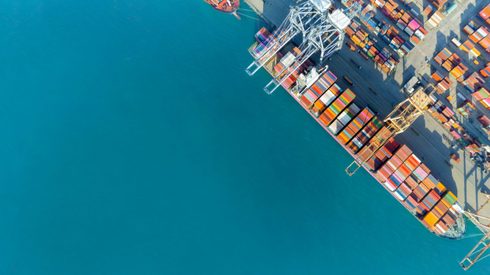The Turkish lira has lost more than 30% in value since May and because flat steel is traded in US dollars in the country, buyers cannot forecast how much they will pay when they receive the product about two months after placing an order, a steel service center source said.
The Central Bank of Turkey halted the decline in the Turkish lira by raising the interest rate to 25% from 17.5% from August 24. And on Tuesday, $1 was equivalent to 26.7369 lira, according to Oanda.com, compared with $1 to 19.441 lira on May 1.
“[If] you order about 10,000 tonnes of steel, you need to pay about 200 million lira [and] most companies do not have such [a big] credit limit. In addition, the risk of steel prices decreasing significantly or the Turkish lira losing value [again, are] always there. As a result, we have reduced the tonnages we order to reduce the risk,” the service center source said.
However, the main reason for lower-tonnage orders is that demand has been negatively affected, with the current lack of demand worse in the domestic market than for exports.
Turkey is not alone in suffering from a lack of dollars, however, with Egypt also recently suffering from currency issues. The shortage of foreign currency in the country has been inhibiting steelmakers from increasing their exports to have sufficient funds to import raw materials and semi-finished products.
“The regulations in Egypt require companies to have [sufficient] foreign currency to open letters of credit. Reduced imports and reduced foreign currency collection naturally results in [lower supplies of] raw materials and semi-finished products,” according to Ugur Dalbeler, chief executive of Turkish steelmaker Colakoglu and vice president of the Turkish Steel Exporters Union (ÇIB).
The main problem for Turkey, however, is the negative [impact on] demand because of increased local prices after the loss of value for the Turkish lira, resulting in a big decline in export tonnages
“The main problem for Turkey, however, is the negative [impact on] demand because of increased local prices after the loss of value for the Turkish lira, resulting in a big decline in export tonnages. [But low-priced] imports from China, Malaysia and South Korea have [recently increased] significantly – [although] imports from China might fall if the Chinese government decides to reduce steel production,” Dalbeler said early in August.
The main problem for the flat steel sector in Turkey is the lack of end-user demand caused by economic uncertainty, market participants told Fastmarkets.
“The Turkish Central Bank’s decision to raise interest rates did not result in [a rebound in the value of the] Turkish lira and, despite the lira being weak, exports are still limited,” a trader told Fastmarkets. “As a result, steel buyers are waiting for demand in both the local or export markets to improve before placing big orders.”
Another market participant said: “We expect September to be stronger in terms of steel market activity, but we still do not expect a very strong market because buyers are hesitant to book big quantities. It is not only about the weak lira; it is about demand from end users.”
Turkey imported 4,762,131 tonnes of flat steel in January-June 2023, 13.60% more than the 4,192,011 tonnes imported in January-June 2022, according to the Turkish Statistical Institute (TUIK).
The country exported 1,468,183 tonnes of flat steel in January-June 2023, 40.34% down on the 2,460,802 tonnes exported in the same period of 2022, according to TUIK data.
Turkey produced 15.9 million tonnes of crude steel in January-June 2023, a 16.3% year-on-year decline, according to the Turkish Steel Producers Association (TÇÜD).





